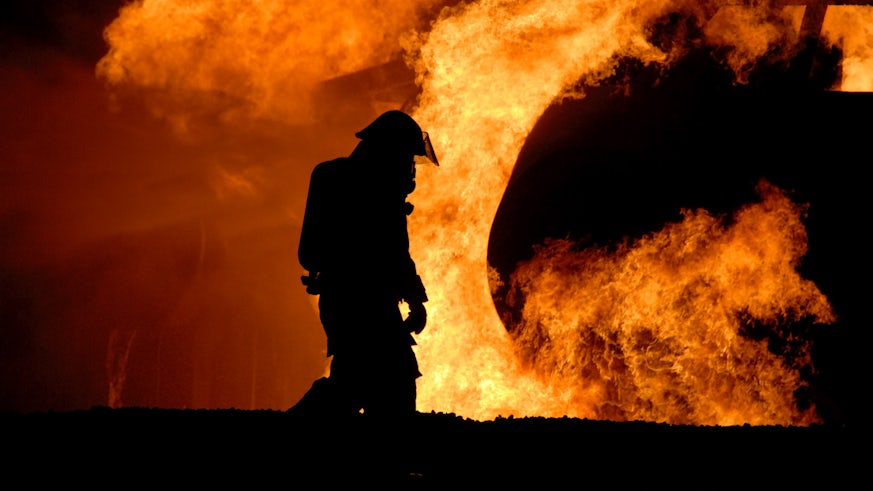Honour for study which revealed ‘intuitive’ fire commanders
6 June 2017

Research improving how fire service commanders tackle major incidents has won an award for innovation.
The study used helmet-mounted video cameras to show how commanders dealt with fast-moving emergency scenarios.
It has led to the development of national policy changing the way fire officers deal with incidents. The new decision control process helps commanders communicate goals, consequences, risks and benefits of actions taken under pressure.
Led by Dr Sabrina Cohen-Hatton, Chief Fire Officers Association, and Professor Rob Honey, School of Psychology, the study has picked up the Innovation in Policy Award at this year’s Cardiff University Innovation and Impact Awards.
The collaboration developed as a result of Dr Cohen-Hatton’s dual role as Honorary Research Fellow at Cardiff University and co-author of the National Operational Guidance for incident command.
An initial piece of research was commissioned by the National Operational Guidance programme to examine how decisions were made in the field.
“The study showed decision making was more likely to be intuitive or reflexive, irrespective of whether a situation was routine or more complex,” said Dr Cohen-Hatton.
Now Deputy Assistant Commissioner at London Fire Brigade, Dr Cohen-Hatton was funded by the Chief Fire Officers Association to build on the research with the School of Psychology.
“The project investigated whether the balance between different types of decision making by experienced Incident Commanders could be modified through training in the use of a rapid mental checklist – ‘Decision Controls’..."
“It highlights the value of evaluating goals and anticipated consequences, and a risk/benefit analysis, once a potential course of action has been identified.”
Professor Honey added: “This ground-breaking research has led to major changes in the way commanders address major emergency incidents.
“The findings showed that a relatively short period of goal-oriented training had a marked impact on the nature of decision-making..."
"This makes the research all the more remarkable, given that many participants had years of experience in senior roles.”
The research lead to two award-winning peer-reviewed papers, three national and international awards, and changes in the UK’s national operational guidance and training of Incident Commanders. The decision controls also feature in the Joint Emergency Services Interoperability Principles, which guide decision making for all blue light services at major incidents, and the Chief Fire Officers Association 2015 report The Foundation for Incident Command.
Additional funding from the Economic and Social Research Council has extended the collaboration with fire and rescue services. The research’s pioneering methods were used to evaluate command decisions at the UK’s largest ever multi-agency exercise—Exercise Unified Response—which featured a full-scale model of a train derailment and tunnel collapse at Waterloo Station.
A number of fire and rescue services have also adopted helmet-mounted cameras to support training and development as a result of the report.





